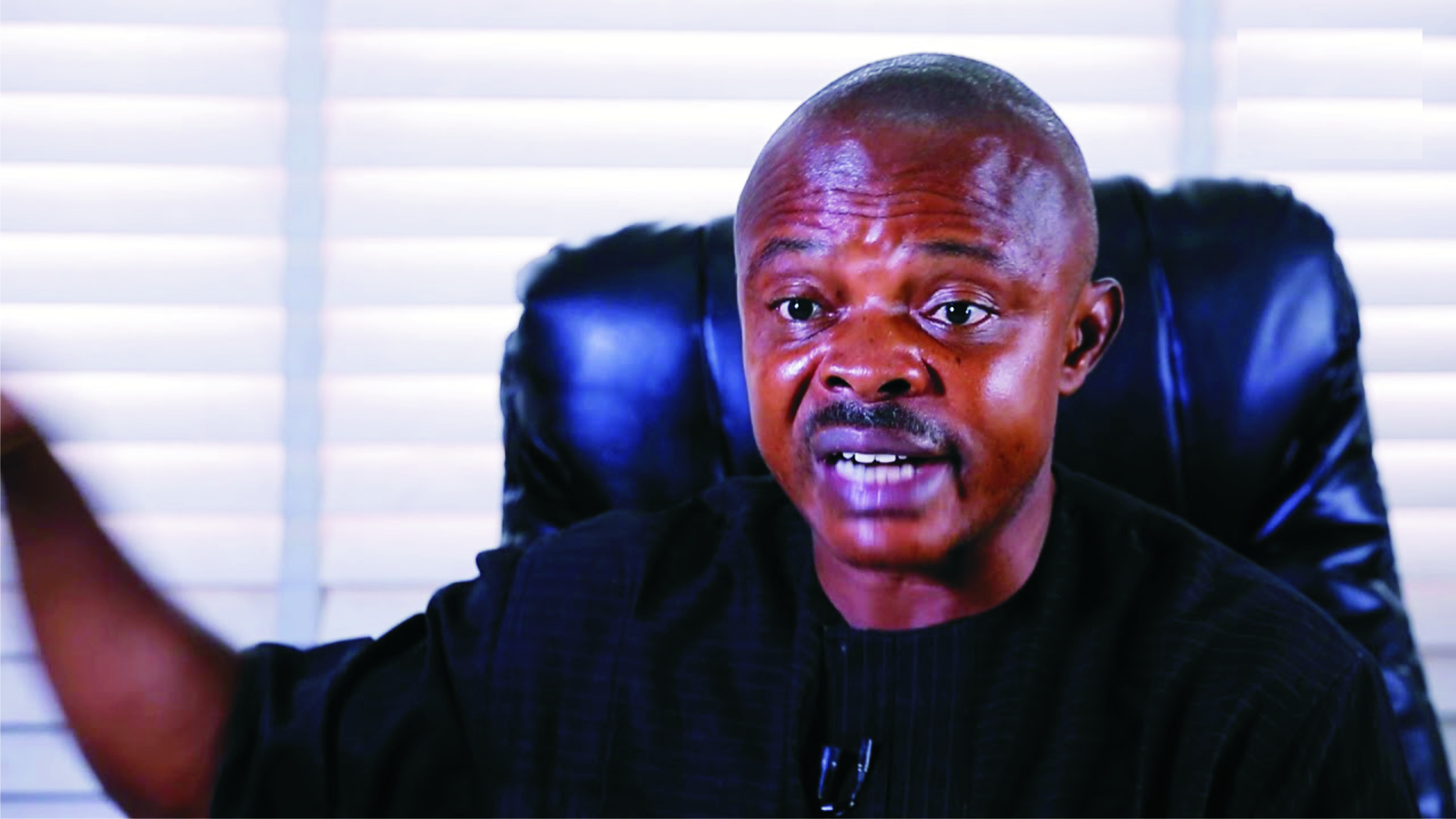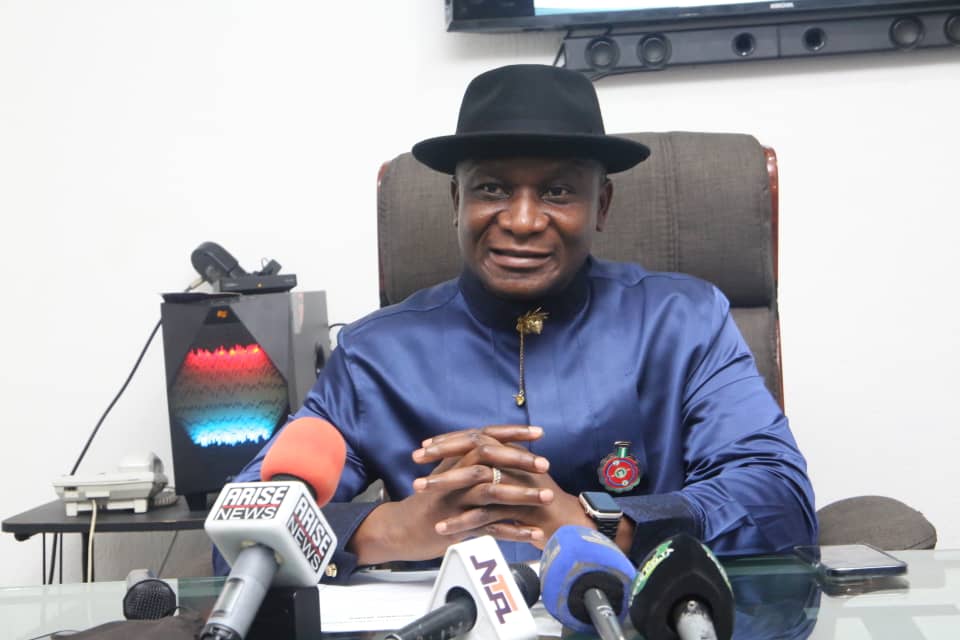News
Polluted N’Delta Communities Can Sue In English Courts, UK S’Court Rules
The United Kingdom’s Supreme Court has ruled that oil-polluted Niger Delta communities can sue Shell subsidiaries in Nigeria in English courts.
The decision is a victory for the communities after a five-year battle, and overturns a Court of Appeal ruling.
The Niger Delta communities, with a population of well over 35million people say decades of pollution and degradation have severely affected their lives, health and local environment.
The oil giant had argued that it was only a holding company for a firm that should be judged under Nigerian law.
However, the Supreme Court, the UK’s final Appeal Court for civil cases, ruled that the cases brought by the Bille community and the Ogale people of Ogoniland against Royal Dutch Shell were arguable and could proceed in the English courts.
Both communities in Rivers State amass a population of approximately 48,000 people.
While Bille is located in the heartland of the Kalabari Kingdom, a predominantly riverine area; the Ogale community is situated in Eleme LGA, one of the four Ogoni LGAs in the state, captured by the United Nations Environment Programme (UNEP) scientific study of over 50 years of oil pollution in the Ogoniland.
Royal Dutch Shell did not dispute that pollution had been caused, but argued that it could not be held legally responsible for its Nigerian subsidiary.
Shell is responsible for about 50 per cent of the Nigeria’s oil production.
Last year, the Court of Appeal agreed with the company, but the Supreme Court said, last Friday that that decision was flawed.
The communities, represented by law firm Leigh Day, argued Shell owed a common law duty of care to individuals who had suffered serious harm as a result of the systemic health, safety and environmental failings of one of its overseas subsidiaries.
In 2011, the UN concluded that it would take 30 to 35 years to clean-up the vast amounts of pollution in the Niger Delta.
The Ogale community of about 40,000 people are mostly fishermen or farmers who rely on Ogoniland’s waterways.
Conversely, Bille community has an approximately 8,000 people in the coastal fringes of Rivers State.
But pollution has all but destroyed fishing, turning their lush home into a toxic wasteland.
There have been, at least, 40 oil spills from Shell’s pipelines since 1989, lawyers say Shell’s records reveal.
The UN scientists have found an 8cm (3 inch) layer of refined oil floating on top of water that supplies the community’s drinking wells – vastly higher than is legally permitted.
The water is now too dirty for people to drink.
Despite promises to provide clean water, people must often either shell out for bottled water or drink from contaminated sources.
Thick crusts of ash and tar cover the land where oil spills have caused fires.
Planting new vegetation to replace burnt crops or plants is almost impossible.
A farmer, Damiete Sanipe, described the area as a wasteland where the trees and the mangrove have been destroyed.
“The habitat is gone; the river we used to swim in is gone. For a coastal community whose life revolved around the water, it’s all gone.
“I don’t think money can bring back what we have lost. Even if they want to revive the mangrove, it will take more than 30 years which is a long time.”
On Friday, Leigh Day lawyer, Daniel Leader, said the ruling was a “watershed” for “impoverished communities seeking to hold powerful corporate actors to account”.
The firm said the amount of compensation sought had yet to be determined.
In a statement, Shell said, “The spills at issue happened in communities that are heavily impacted by oil theft, illegal oil refining, and the sabotage of pipelines.”
It said that, despite the causes of the pollution, its subsidiary had worked hard to both clean-up and prevent spills.
It’s the latest in a run of international and domestic law suits over Shell’s oil extraction in Nigeria.
In 2015, it accepted responsibility for two spills and agreed to pay £55million ($76million) to the Bodo community and assist in the clean-up.
In 2006, a Nigerian court ordered the company and partners to pay $1.5billion to the Ijaw people of Bayelsa State for environmental degradation in the area.
In an ongoing civil case, the widows of four environmental activists executed by Nigeria’s military regime in 1995 are suing Shell for allegedly providing support to the military.
The Shell denies the claims.
The decision, last Friday, is the latest case to test whether multinational companies can be held accountable for the acts of overseas subsidiaries.
Reacting, Amnesty International welcomed the ruling.
The Director of Amnesty International’s Global Issues Programme, Mark Dummett, said the fight had not yet been won, but added, “This landmark ruling could spell the end of a long chapter of impunity for Shell and for other multinationals who commit human rights abuses overseas.”
Leigh Day also represented 2,500 Zambian villagers in their pollution case against UK-based mining giant Vedanta Resources.
Last month, the Supreme Court ruled in their favour, and they won an undisclosed settlement.
News
May Day: Labour Seeks Inclusiveness In Policy-making

The Organised Labour yesterday, called on the Federal Government to ensure inclusiveness in policy making and guide against erosion of rights, such as free speech and association.
The President, Nigeria Labour Congress (NLC), Mr Joe Ajaero made the call at the 2025 Workers’ Day celebration held at the Eagle’s Square, Abuja.
The Tide source reports Ajaero and the President, Trade Union Congress, Mr Festus Osifo delivered a joint statement on behalf of the organised labour at the event.
Ajaero described May Day as, not only a moment to honour workers’ sacrifices, but also a platform to demand justice and accountability from those in public office.
He frowned at the alleged suppression of protests, and the erosion of rights of workers by some agents
According to him, workers have a duty to resist economic injustice, insecurity, and policies that undermine their dignity.
Speaking on the theme of the day, the NLC President underscored the need for Nigerian workers to reclaim the civic space and resist policies that contribute to worsening economic conditions.
“Our theme this year – “Reclaiming the Civic Space in the midst of Economic Hardship – reflects the urgent need for citizens to protect democracy and push back against repression.
“The civic space, where Nigerians express their concerns and challenge injustices is shrinking.
“If we fail to reclaim this space, the foundation of our democracy risks collapse,” he said
Ajaero, therefore, urged workers to unite and resist division, fear, and despair.
He also urged them to mobilise and organise for change, declaring that the right to demand better conditions is non-negotiable.
“Without workers, there is no society; without labour, there is no development. We must take our place in the fight for economic justice and democratic governance.”
Speaking in the same veins, Osifo said workers are the backbone of the nation—the educators, healthcare providers, builders, farmers, and innovators who sustain its economy -.
He stressed the need for the labour to reclaim the civic space even in the midst of economic hardship.
News
2025 UTME: JAMB Disowns Site Requesting Payment From Candidates

The Joint Admissions and Matriculation Board (JAMB) has disassociated itself from a fraudulent site requesting payments from candidates who missed the ongoing 2025 Unified Tertiary Matriculation Examination (UTME).
The board said that the site, “Copyrightwriter Personal J Rescheduling Flw” and account number 8520641017 at Sterling Bank, associated with it, are scam.
The disclaimer is contained in a statement made available to newsmen in Abuja on Thursday by the Board’s Public Communication Advisor, Dr Fabian Benjamin.
Benjamin said the account is being exploited to defraud unsuspecting candidates who missed their UTME.
“We issue this urgent notice to inform the public about this nefarious scheme targeting candidates who were unable to participate in the UTME.
“Some unscrupulous individuals are deceitfully soliciting payments of N15,700 under the false pretence of offering rescheduling services for the examination.
“Let us be unequivocal: this, it is a blatant scam, and we are confident that the public will not fall prey to such cheap and regressive tactics.
” The individuals behind this scam have no affiliation with JAMB or any legitimate government agency.
“The account details provided in these communications are entirely fictitious and bear no connection to any official processes; they exist solely for the purpose of perpetrating fraud,” he said.
Benjamin called on Sterling bank to take immediate and decisive action against this criminal activity.
According to him, JAMB has reported the matter to the relevant security agencies and actively pursuing those responsible for this deceitful act.
He further said that “JAMB does not reschedule examinations for candidates who miss their scheduled tests due to reasons unrelated to the Board’s actions”.
He, however, said that the Board is conducting a thorough investigation for candidates whose biometrics failed during verification and were thus unable to sit for the examination.
He said those without discrepancies would be invited to retake the examination at no cost , stressing that “no cost is required”
“It is imperative to understand that JAMB does not charge any fees for examinations after a candidate has completed their registration.
“We strongly urge all candidates to remain vigilant and not to succumb to these fraudulent schemes.
“Protect yourselves and report any suspicious activity immediately,” he explained.
News
NDDC Seeks UN’s Support To Accelerate Niger Delta Development

The Niger Delta Development Commission (NDDC) has expressed its willingness to partner with the United Nations (UN) to accelerate the development of the Niger Delta region.
Dr Samual Ogbuku, Managing Director of the NDDC, made the appeal in a statement issued by the commission’s Director of Corporate Affairs, Mrs Seledi Thompson-Wakama, in Port Harcourt on yesterday.
According to the statement, Ogbuku sought the UN’s support during his visit to the UN Resident and Humanitarian Coordinator (UNRHC), Mr Mohammed Fall, at the UN regional office in Abuja.
He called on the global body to provide the NDDC with technical assistance and expert services to support the region’s development.
“We are eager to collaborate with the UN, recognising that the state governments in the region and the NDDC alone cannot achieve the level of regional development required,” he said.
Ogbuku identified key areas where support would be needed, including the provision of portable and affordable drinking water powered by high-tech solar energy sources.
He also highlighted the importance of reforesting the mangrove swamps, which have been severely damaged by decades of environmental degradation caused by oil exploration in the Niger Delta.
“Although the NDDC has made progress in providing solar-powered streetlights across the region, we still require UN support in delivering solar energy solutions for residential buildings.
“We also wish to explore the possibility of installing solar mini-grids in homes across communities, which would boost local commerce and trade,” he added.
The NDDC managing director further appealed for increased UN involvement in areas such as healthcare, education, youth training, gender development, and food security.
Ogunku stated that such interventions would significantly enhance the standard of living in the region.
In response, Fall affirmed the UN’s readiness to collaborate with the NDDC to fast track development in the Niger Delta.
He assured that the UN would support initiatives in food security, job creation, education, and renewable energy, among other areas.
“We aim to approach development in the Niger Delta holistically, rather than focusing solely on environmental pollution.
“This is merely an entry point; however, the UN’s development vision aligns with the Sustainable Development Goals (SDGs), which are designed to positively impact various aspects of people’s lives,” Fall stated.
He assured the NDDC of continued and fruitful engagements to drive the region’s development.

